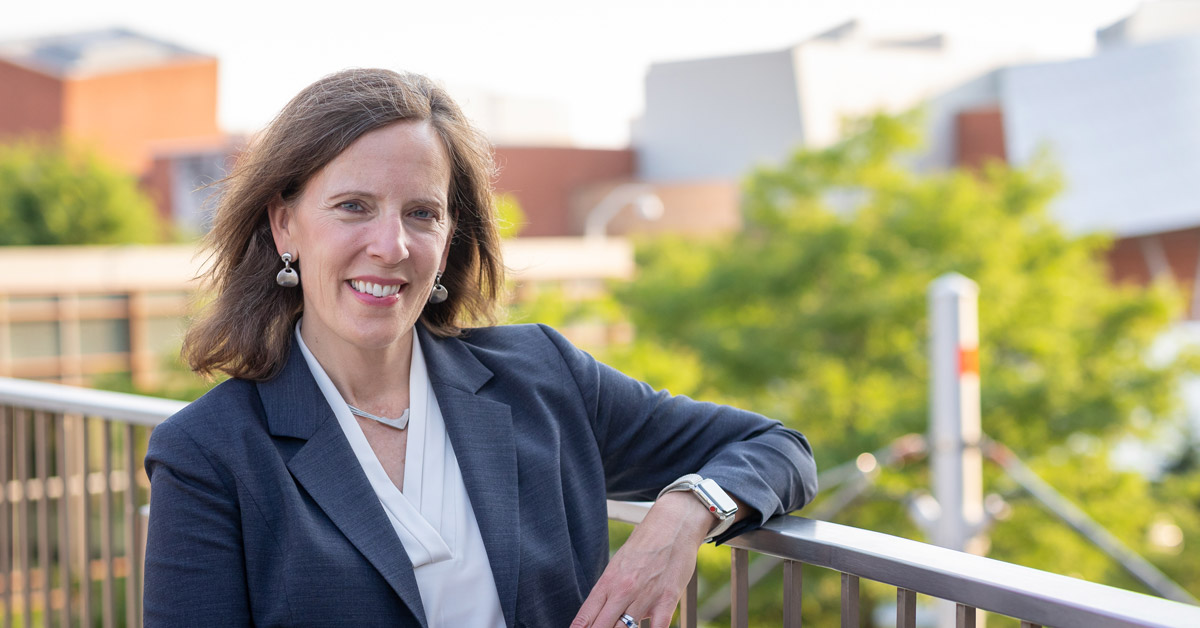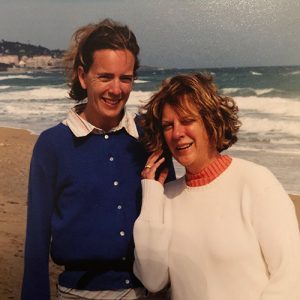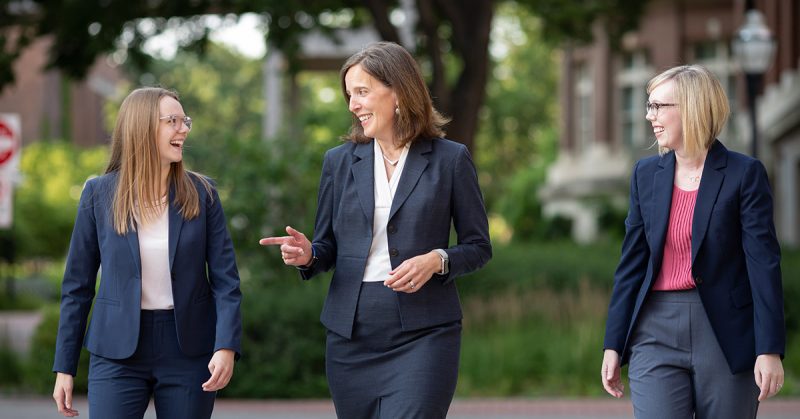
A Legacy of Leadership:
Celebrating the First Mother-Daughter pair to receive MHA degrees from the UMN School of Public Health
Chris Bent, MHA ’94, Hospital & Healthcare Administration
“[Having a title] has not driven me, but rather the ability to impact and hopefully better the lives of the people we serve — those are the things that have motivated me the most.”
A Foundation of Community Service
Growing up in California, Christine (Chris) Bent had a clear model for community service in both of her parents. Central to the family’s identity was a focus on wellness and service to others. When Bent was 12, her mother left her role as a stay-at-home mom and returned to work as a nurse in a chemical dependency and mental health unit. The family moved to Minnesota when Bent’s father, a Lutheran pastor, was called to a church in Minneapolis.

Once in Minnesota, Bent’s mother, Mary Olson Cornils Baich, decided to leave nursing and enter the Master of Healthcare Administration (MHA) program as a full-time student, seeking opportunities to move her career from direct service to healthcare leadership. Bent recalls that her mother was the oldest student in her class, and one of the only non-traditional students.
Baich graduated in 1991 and joined Fairview Health Services as an administrative fellow, under the guidance of then-president and chief operating officer Rick Norling (MHA 1975). In this role, she developed a church and community health program for all of the hospitals in the system, an idea that was cutting edge for its time. In her work, she broadened the health system focus from traditional rescue care within a hospital’s four walls to fostering partnerships and creating healthy communities (ultimately decreasing the need for hospital care). Baich spent her time going into communities served by Fairview, holding listening sessions, and then finding the resources to advance the work the communities wanted. It was a planned, system-wide approach that enabled Fairview to take a leadership role in establishing community partnerships to improve the health of those within the areas it served. The Healthcare Forum awarded Baich the respected W. Glenn Ebersole Award for her work.
During this same time, Bent was finishing her undergraduate degree at Carleton College in Northfield, MN. Her mother saw her aptitude for business and encouraged Bent to use those skills to pursue a career to benefit others. Bent entered the MHA program the year after her mother graduated.
Baich went on to lead the Fairview Foundation and then became president of Vesper Society, an organization that serves the most vulnerable by nurturing nonprofits across the world. She was remembered as a humble, effective leader.

Bent has grown into an exceptional healthcare leader in her own right. “To get into the MHA program, I had to say that I wanted to be a hospital president,” she says. “That sounded as good as anything at the time.”
Post-graduation, Bent used the strength of the MHA alumni network to connect with Ken Paulus (MHA 1983), and launched her career. Paulus, then chief operating officer of the physician network at Partners HealthCare, hired her to work for his team. After a career path leading ambulatory and post acute care functions in large, integrated healthcare systems, she got a call from Paulus again, this time in his role as president and chief executive officer of Prime Therapeutics. Paulus brought her on board and Bent currently serves Prime Therapeutics as chief operating officer and senior vice president, responsible for the organization’s day-to-day pharmacy benefit management (PBM) operations planning and delivery.
Solving Problems the Minnesota Way
As part of their MHA education, Bent and her mother learned how to use the Minnesota MHA Problem Solving Method, which teaches students how to break down complicated problems and ask the right questions to properly define underlying issues. One constant throughout Bent’s career is the way she has used that method to find innovative solutions to the challenges her organizations face.
“We’re trying to provide the best outcomes for our members and patients,” she says. “The traditional way we’ve tried to do that in healthcare is to build more buildings in their communities and bring programs and services to them. What we learned by applying the problem solving method was that people wanted and needed us to coordinate and connect their care, not build more buildings.”
Like Mother, Like Daughter
Baich modeled effective, compassionate leadership for her daughter, and was a champion and mentor for other women in healthcare.
“She showed us that you can be kind and effective in what you do, and encouraged me to always say yes to helping others and supporting them as they grow in their careers,” says Bent.
Bent currently volunteers as president of the Women’s Health Leadership TRUST, where she is able to coach, mentor, and champion women in healthcare, just as her mother did during her own career. She is also a perennial volunteer with the MHA program, where she coaches students as they learn the problem solving method.
In addition to her demanding professional life and robust volunteer roles, Bent is a wife and mom, and was a caregiver to her mother who died from Parkinson’s disease in 2020. Bent’s commitment to her family, work, community, and the people she serves is a living testament to the lessons her mother taught her and the effectiveness of the tools she gained in the MHA program. “At the end of the day, it’s each individual’s right to have the best access, the best programs, and the best services so that they can lead the life that they want to live.”
